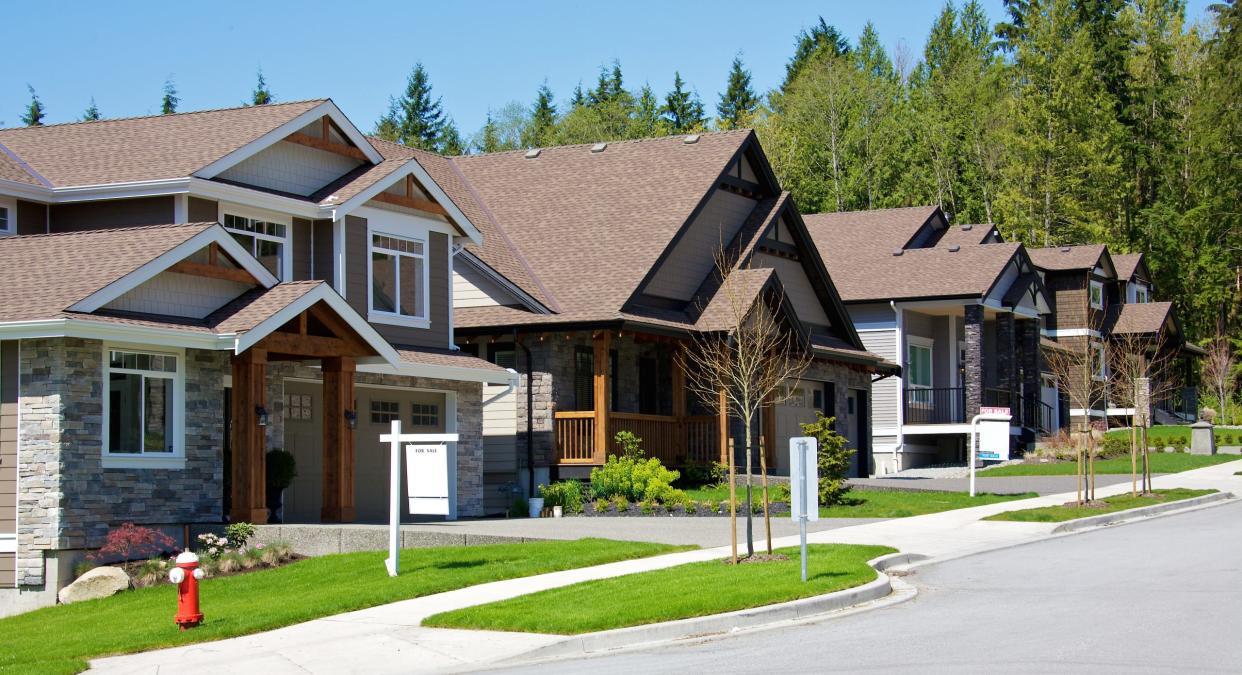Investing in Real Estate? You Only Need This Much Money Saved to Get Started

When it comes to investing, there are many options but the one that continually blows the roof off of the others is real estate. According to a CNBC poll, 23% of Americans think it’s the best way to build wealth, and they’re on to something according to experts.
See: 2023’s Housing Correction Could Be the Largest Since Post-WWII
Find: 3 Things You Must Do When Your Savings Reach $50,000
Learn: Here’s How Much Americans Have in Their Savings Accounts in 2023
“Real estate is much better from a risk-reward standpoint than stocks. You can make a lot more money with a lot less risk,” Wall Street banking investment analyst James Berkely told Business Insider.
Even better, investing in real estate doesn’t take hundreds of thousands of dollars.
“Real estate investing is certainly accessible for everyday people,” says Shri Ganeshram, Founder and CEO of Awning, a tech-driven platform that helps people buy and own rental properties through options like buy-side representation, short-term rental furnishing and management and free Airbnb estimator tools similar to Zillow. “There are plenty of opportunities that someone could invest in with just $20,000 in savings.”
Ganeshram also points out that one of the benefits of a tool like Awning is that they offer partnerships with companies that allow investors to pool their money as a team to purchase a property, making it even more accessible to more people. “Wealthy individuals certainly have an advantage, but many of them built their wealth one investment at a time and it’s never too late to start,” he adds.
When it comes to specific dollar amounts to consider before investing in real estate, Ganeshram says, “$25,000 is a minimum for an investment property right now for a traditional rental, and $50,000 to $75,000 is the range for a good Airbnb property because of the additional money needed for furnishing and supplies.”
If you have those savings or have access to a line of credit to pay back and want to get started investing in real estate, Ganeshram offers some tips for beginners – and it doesn’t mean you have to go about with teardowns that require a lot more investment.
“There is house hacking, in which investors live in a multi-unit home while collecting rent and covering the mortgage with that money,” he says, offering one option. “However, for most people that are just starting out, it’s better to invest in a traditional rental and simply focus on their primary job or source of income while they generate cash flow, appreciation, and equity through mortgage repayment. Then take some more savings and the money the property has earned and invest it again.”
There’s also the option for “fractional investing” as you can do with options like the app Here that allows you to buy shares in an investment property almost like stocks. “It’s a possible entry point, but it doesn’t have many of the benefits of real estate,” cautions Ganeshram. “Owners don’t accumulate the tax advantages of being an investor (mortgage interest deductions are an example) and they have little to no control over investment performance. … Overall, if you are strapped for capital to invest, it’s much better to team up with others in the same situation, then it is to buy shares in an investment that you have little to no control over.”
Ganeshram also points out there are other financial investments to consider before getting started in real estate, like insurance.
“It’s usually more expensive [for investors] and you’ll want to do your due diligence for the property by reviewing inspection reports and calling in professionals to look deeper at certain issues. Having a good agent is the single biggest predictor of landing a good investment,” he says, noting an agent can source good properties from across the market, analyze deals and steer clients away from bad deals, which will ensure the success of the investor.
Take Our Poll: How Big of a Sign-Up Bonus Would It Take for You To Change Banks?
He also offers some tips on hot markets to look into when you are ready to invest:
Long-term rentals: “Parts of Texas like Houston and the Dallas-Fort Worth area are still showing high returns for investors.”
Short-term rentals: “The Blue Ridge area in Georgia is doing very well with plenty of opportunity and a good regulatory environment.”
Investors with more capital: “Parts of Florida and California with beaches, vineyards and amusement parks have some amazing properties for conversion into Airbnbs.”
Investors strapped for cash: “Look at the Atlanta area and parts of Alabama like Birmingham where there is a large amount of job growth and relatively inexpensive real estate.”
More From GOBankingRates
This article originally appeared on GOBankingRates.com: Investing in Real Estate? You Only Need This Much Money Saved to Get Started
